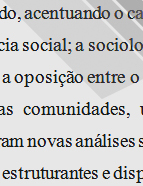

................................
Let us now look at two Histories of Portugal that appeared after the one Herculano did not complete. One, of lesser quality, by Manuel Pinheiro Chagas (1842/1895), History of Portugal from the earliest times to the present day, written according to the plan of Ferdinand Denis by a Society of Men of Letters (8 vols.) and the História de Portugal popular e ilustrada (Popular and Illustrated History of Portugal), continued by J. Barbosa Colen, Marques Gomes and Alfredo Gallis (14 vols, 1899-1909). These works are based mainly on studies by other authors and constitute a narrative of facts that highlights the actions of great men and the most significant episodes with the aim of disseminating history (Sérgio C. Matos, Idem, pp. 37-38).
Another, more significant work is by Luís Augusto Rebelo da Silva (1822-1871), a senior civil servant, journalist and politician who held the positions of deputy, Member of the Kingdom and Minister in the government of the Duke of Loulé (1869-70), magistrate and deputy to the General and Extraordinary Cortes of the Portuguese Nation (1821) and member of the Regency of Brazil in 1822. He was one of the first professors of history in the Higher Course of Letters (1859), a member of the ARCL (since 1854) and a member of the National Conservatory, the Institute of Coimbra and several Brazilian institutions. His History of Portugal in the 17th and 18th Centuries (1860-1871, 5 vols.) was sponsored by the political authorities (1858, decree of the Marquis of Loulé ) and was intended to respond to the spread of Iberian ideas (Sérgio C. Matos, Idem, p. 100). Following in Herculano’s footsteps, the erudition and accuracy of the facts are based on solid documentation and, although the chronological scope is limited to the period between the reign of King Sebastian and the Restoration, it aims to present a broad overview of Portuguese society: a general picture of the population, agriculture, industry, trade and the status of the various social groups in their relations with power and institutions, presented in a comprehensive manner (political, administrative, judicial and fiscal, but also military, police, religious, cultural, public education, welfare and charity). It is a fundamental work for understanding the institutional framework of the period in question and even of the medieval era. It was republished by Jorge Borges de Macedo (1971), who wrote an introduction highlighting the work’s value in the context of liberal historiography.
This work is financed by national funds through FCT - Foundation for Science and Technology, I.P, in the scope of the projects UIDB/04311/2020 and UIDP/04311/2020.
